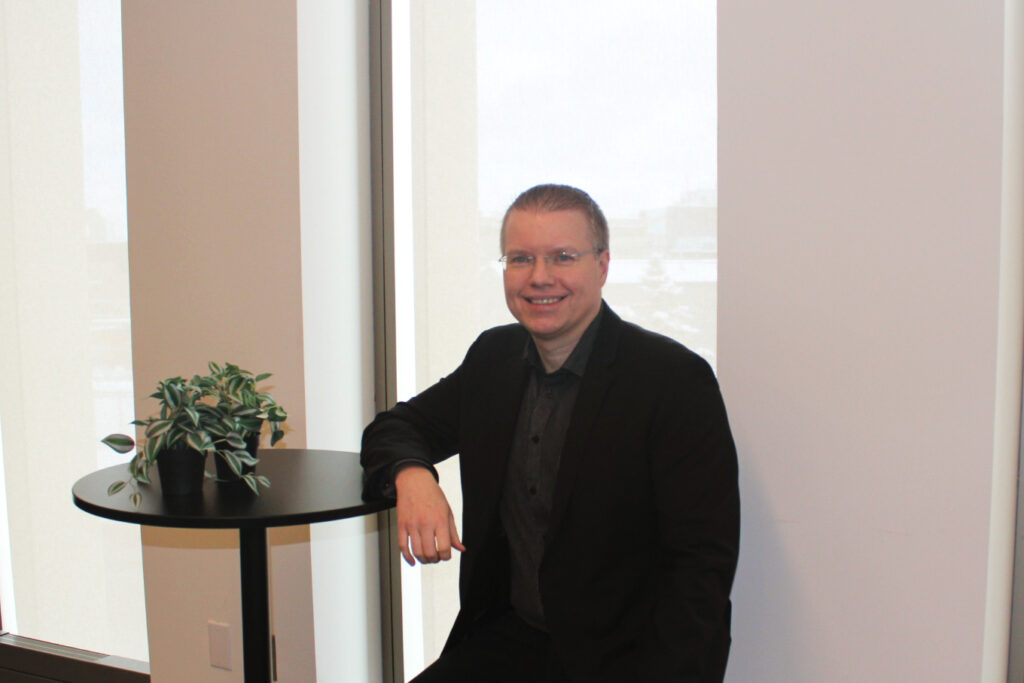Facilitating workplace integration of international student graduates
Daniel Gulanowski (Assistant Professor, International Business) is studying how we can facilitate the successful integration of international students within Canadian society. He sees meaningful employment as a key factor in boosting our retention of these highly skilled and talented migrants.

Daniel’s recent focus on retaining international students within Canada synthesizes two strands throughout his work program: migrant integration and student success. For Daniel, integration in this context necessarily means workforce integration.
“It’s good to adjust culturally and know the language and everything else, but at the end of the day, if newcomers are going to integrate fully into Canadian society, they need employment. They need the economic means to sustain themselves and create a better life in Canada for themselves and their families.”
His research in this domain spans diverse demographic groups—from expatriates who arrive with secured positions arranged by their employers to refugees whose displacement leads to “reduced social, cultural, and economic capital,” and a “disruption to occupational status and professional identity” (“Identity work in refugee workforce integration”). It also extends beyond migrants themselves, to include newcomer support organizations (NSOs)—non-governmental and community organizations that actively support refugees as they resettle in the receiving nations.
The field is an emerging one, requiring exploratory but robust qualitative research. For example, Daniel’s study of NSOs (conducted with fellow Sprott researchers Luciara Nardon and Hui Zhang) included formal interviews with 25 NSO managers and staff members, 11 highly-skilled refugees, and informal discussions with individuals from both groups. The researchers discovered that pressures faced by the NSOs (i.e., budgetary constraints, limited employer engagement) led them to engage in processes of expectation management that simultaneously normalize downward mobility and foster hope among refugees by suggesting that the immediate sacrifices required of them would likely be temporary. Put simply, they found that the NSOs inadvertently reinforced the inequality and marginalization they aimed to alleviate. Such findings indicate a clear and urgent need for ongoing research to improve Canada’s workforce integration of refugees.
Daniel’s recent shift in focus to international students is inspired by his experience as a professor.
“I wanted to focus on international students because I teach many international students in my courses. I see the challenges they face, and I know that not all students who want to stay in Canada are able to stay after graduation.”
One particular project sees Daniel partner with Sprott’s Greg Sears and others to examine how online technologies can facilitate postgraduation employment integration of international students in Canada. This work builds upon their previous study that found a need for research that explores the “specific practices organizations and educational institutions can implement to reduce [the barriers to workplace integration faced by international students] and enhance the workplace integration of international graduates” (International student graduates’ workforce integration).
The team hopes to pinpoint how technology can help graduates build networks, foster fruitful connections, and learn about opportunities and vacant positions. While it’s too early to discuss preliminary findings or working hypotheses, the project is well underway. Ethics clearance has been obtained, and the survey and interview data are being collected. Ultimately, Daniel hopes that the knowledge the team creates will result in policy recommendations that will improve employment outcomes for international graduates—something that is both urgently necessary and highly possible:
“These are people with Canadian degrees. They’ve had four to five years of acculturation. They speak the language. They’ve developed social networks. If we can’t help them integrate successfully, we’re losing out on a great opportunity as a nation.”
For his part, Daniel is working hard to ensure that doesn’t happen.
